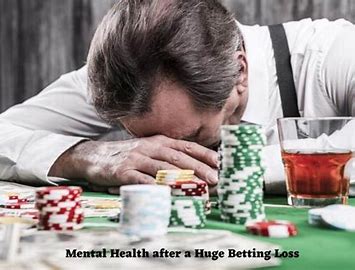Blog Detail Page
Responsible Gambling: A Comprehensive Guide

Responsible gambling is essential for maintaining a healthy and enjoyable betting experience while minimizing the potential risks associated with gambling.
Responsible gambling is essential for maintaining a healthy and enjoyable betting experience while minimizing the potential risks associated with gambling. Whether you're a novice or an experienced bettor, adopting responsible gambling practices is crucial. Here's a comprehensive guide to responsible gambling:
1. Self-Assessment:
- Understanding Your Motivations: Reflect on why you engage in gambling activities.
- Awareness of Risk Tolerance: Assess your comfort level with financial risks.
2. Setting Limits:
- Budget Allocation: Determine the amount of money you can afford to lose without affecting your financial well-being.
- Time Limits: Set limits on the amount of time you spend gambling.
3. Bankroll Management:
- Separation of Funds: Keep your gambling funds separate from your essential finances.
- Consistent Betting Units: Use a consistent unit size to manage bets effectively.
4. Recognizing Signs of Problem Gambling:
- Chasing Losses: If you find yourself trying to recover losses through additional gambling.
- Neglecting Responsibilities: Gambling should not interfere with work, relationships, or other responsibilities.
5. Seeking Support:
- Friends and Family: Share your gambling activities with friends or family for an external perspective.
- Professional Help: If you're concerned about your gambling behavior, consider seeking help from a counselor or support group.
6. Self-Exclusion and Cooling-Off Periods:
- Limiting Access: Use self-exclusion tools provided by casinos or betting platforms to restrict access.
- Timeouts: Consider taking breaks from gambling by implementing cooling-off periods.
7. Understanding the Odds:
- Informed Decision-Making: Be aware of the odds and probabilities associated with different bets.
- Realistic Expectations: Understand that the house always has an edge, and winning is not guaranteed.
8. Avoiding Impulsive Bets:
- Emotional Control: Don't make bets based on emotions or in the heat of the moment.
- Strategic Decision-Making: Plan your bets and stick to your strategy.
9. Educating Yourself:
- Game Rules: Understand the rules of the games you're betting on.
- Knowledge is Power: The more you know about a sport or game, the better-informed decisions you can make.
10. Utilizing Responsible Gambling Tools:
- Deposit Limits: Set limits on the amount of money you can deposit within a specific timeframe.
- Reality Checks: Use tools that provide reminders about the time spent gambling.
11. Regular Self-Reflection:
- Assessing Behavior: Periodically reflect on your gambling habits and behaviors.
- Adjusting Strategies: If certain strategies or types of bets are causing concerns, be willing to adjust.
12. Promoting a Social Aspect:
- Shared Experiences: If possible, engage in gambling activities with friends to promote a social and recreational aspect.
- Avoiding Isolation: Gambling should not be a solitary activity that isolates you from others.
13. Legal and Ethical Gambling:
- Understanding Regulations: Be aware of and comply with gambling regulations in your jurisdiction.
- Respecting Terms and Conditions: Abide by the rules set by casinos and betting platforms.
14. Taking Breaks:
- Scheduled Breaks: Plan breaks in your gambling activities to prevent burnout.
- Reassessing Strategies: Use breaks to reassess your betting strategies and goals.
15. Continuous Learning:
- Stay Informed: Keep abreast of responsible gambling practices and resources.
- Adapting Strategies: Continuously adapt your gambling strategies based on your experiences and self-reflection.
By embracing responsible gambling practices, you can enjoy the entertainment value of betting while safeguarding your well-being. Remember that gambling should be a form of recreation, and if it ceases to be enjoyable or starts causing distress, seeking assistance is a responsible choice.
0 Comments

ratsam admin
hello i am here
Categories
- Sports betting 26
- Arbitrage 6
- bookmakers 2
- Uncategorized 1
Recent Post




